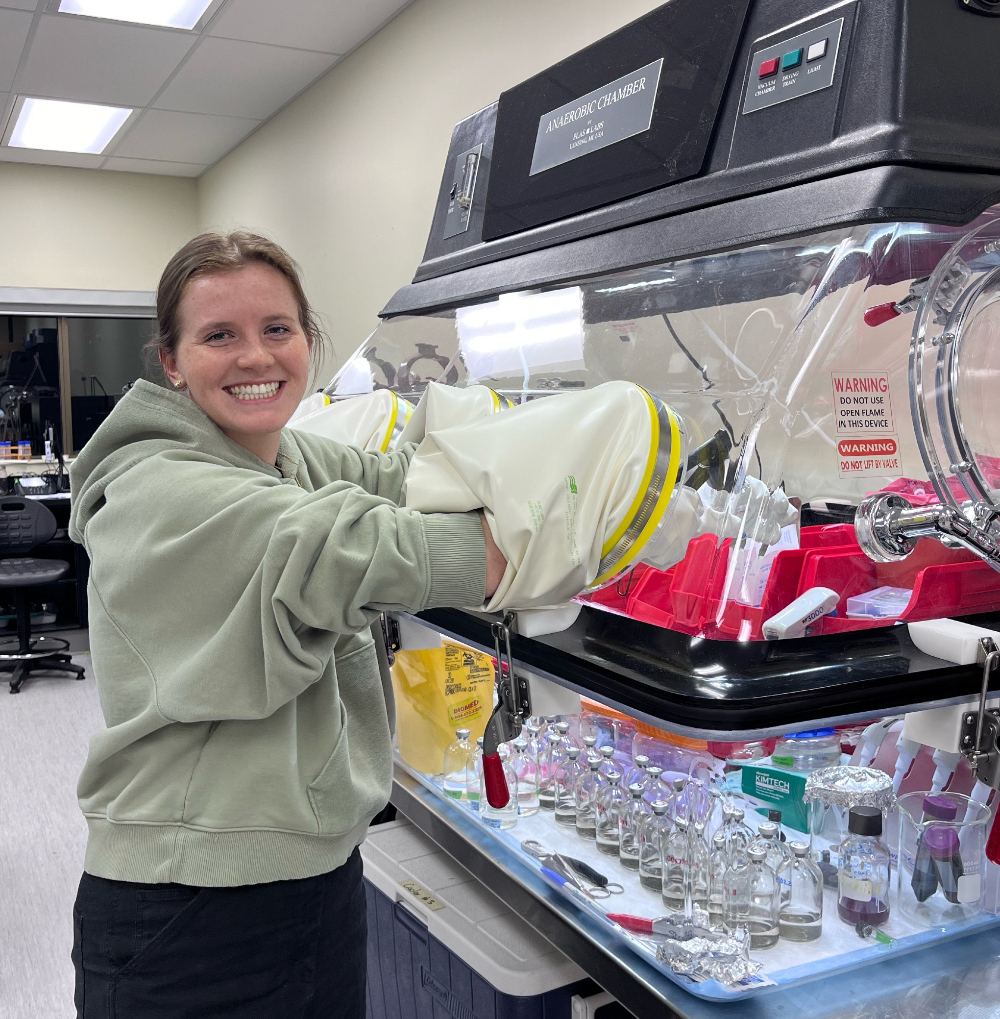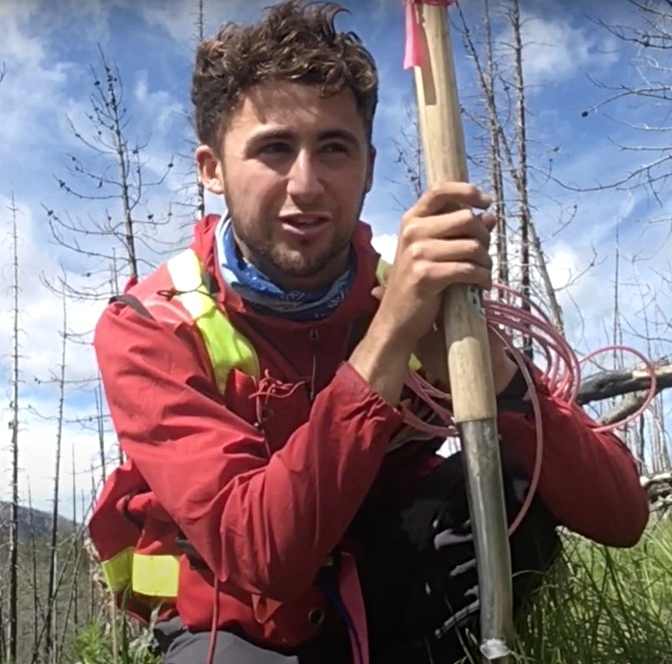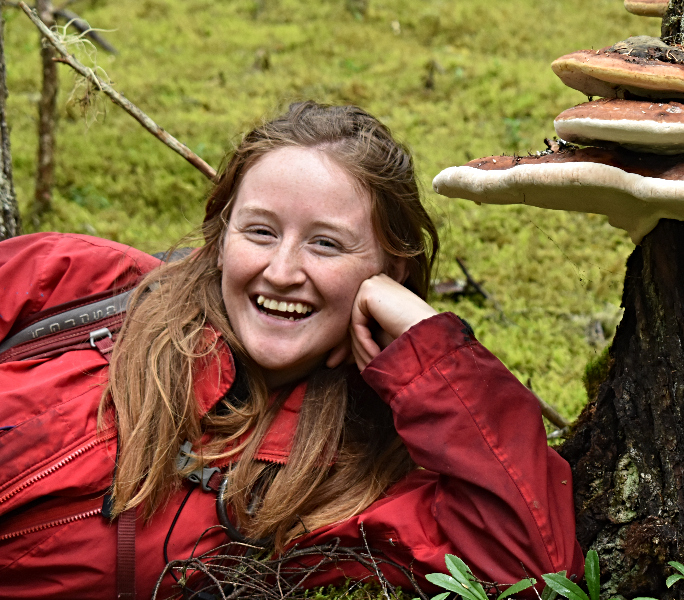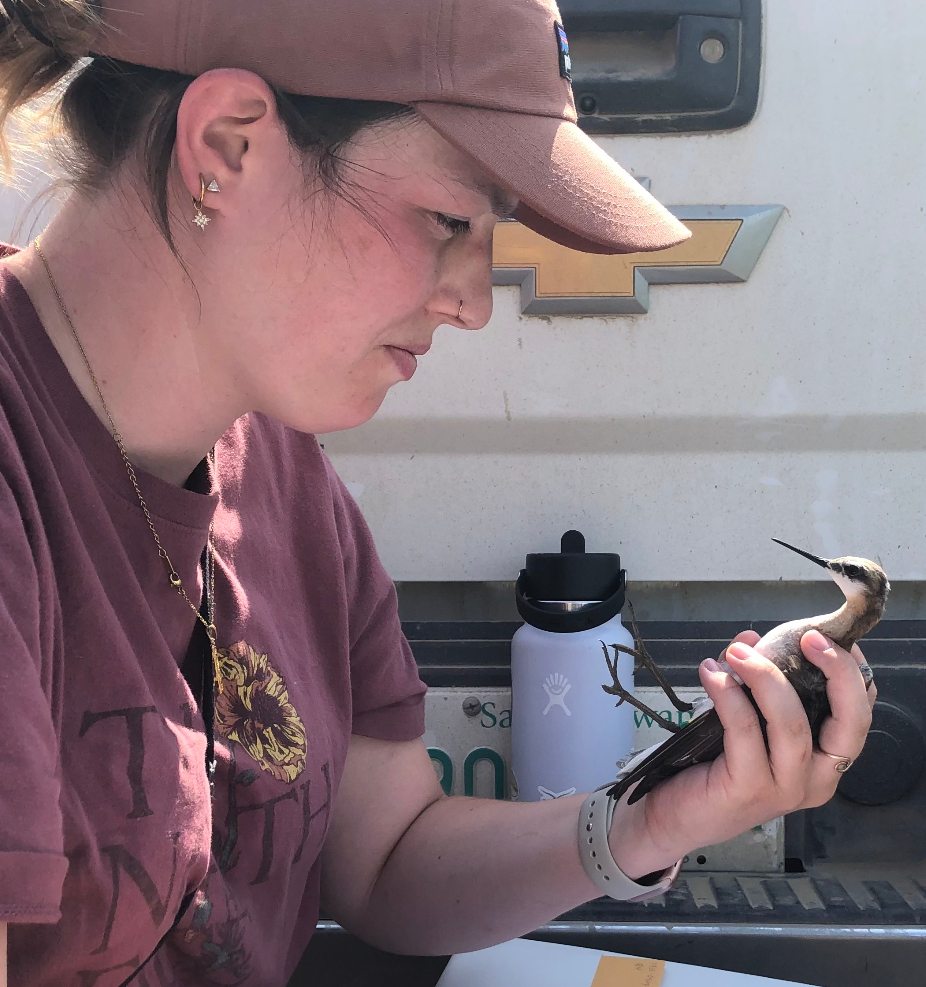Seven graduate students at Thompson Rivers University (TRU) are getting a financial boost to back their work as recipients of this year’s B.C. Graduate Scholarships. The province announced expanded graduate scholarship funding in 2023 and has invested approximately $15 million in graduate scholarships over three years.

Olivia McLennan
These scholarships boost talent and innovation growth, aids in attracting and retaining skilled individuals, and supports the academic success of postgraduates in B.C.’s thriving economy.
“These scholarships will help more graduate students become our province’s next generation of researchers, innovators and leaders, and the talent that employers and British Columbians rely on,” said Selina Robinson, past minister of Post-Secondary Education and Future Skills, who made the announcement while still in office.
“Through the StrongerBC: Future Ready Action Plan, we’re supporting graduate students by significantly increasing graduate scholarships, making education more affordable and more accessible and helping set people up for success in our growing economy.”
Honoured to receive scholarships
The seven TRU students all expressed gratitude for the scholarships that will spur their studies forward.
MBA student Tana Jones’ work explores the missing middle housing — looking at whether higher density, infill developments ranging from duplexes to live-work setups have the potential to meet residential demand more effectively than single-family homes and how it might fill housing gaps in Kamloops.
“Receiving this award is a direct result of the invaluable inspiration, direction, and support given by my thesis supervisors, committee members and the folks at the TRU Research Office. It is a testament to their great work in shaping students’ understanding of research and creating TRU’s vibrant research environment,” said Jones.

Olivier Jumeau
“Personally, it’s an incredible validation of countless hours spent working on research I believed mattered, and this award gives me the opportunity to continue to develop that understanding and contribution — I am beyond grateful.”
First-year Master of Science in Environmental Science (MScES) student Olivia McLennan’s research addresses the pressing need for sustainable PFAS — commonly known as forever chemicals — degradation and removal methods, innovative solutions to mitigate their environmental impact.
“To be recognized for my research and past achievements at TRU, and to now have the privilege of focusing on furthering my education, is surreal,” said McLennan.
“I would like to thank my family and friends for their support, as well as my research supervisors and collaborators — none of this would be possible without them. I truly look forward to the day I can pay this forward to another student in need.”
From glaciers to silvopasture
Tay Powrie, also a second-year MScES student, hopes to identify and quantify changes in the rate of glacier recession and glacier-induced changes to stream processes within the watershed that may impact the community and fish use. Study results will be shared with the Adams Lake Indian Band (ALIB) Natural Resource department, which is developing and implementing innovative cumulative effects management plans and models for the watershed, and with the Shuswap Watershed Council (SWC), a collaborative group that focuses on strategic initiatives to protect, maintain and enhance water quality in the Shuswap.

Mae Frank
“I am constantly inspired by the passion and work ethic of fellow researchers at Thompson Rivers University working toward the positive changes necessary for the health and sustainability of ecosystems and communities. This scholarship not only provides us with the
financial support for our research endeavours, but also serves as a powerful motivator for us to continue to achieve our goals,” said Powrie.
“Receiving the B.C. Graduate Scholarship means that I can focus on providing both ALIB and the SWC with quality data that may help in managing water resources, benefitting ecosystems and communities within the region.”
First-year MScES students are also participating in meaningful research, including Olivier Jumeau, who is working with the Ulkatcho First Nation to study the effects of wildfire on caribou habitat.
“This scholarship is a massive achievement for me and my academic career and will help me focus my efforts on my research and to continue studying the topics in wildlife and wildfire

Sydney Miller
ecology that I am passionate about,” said Jumeau.
Mae Frank is discovering the dynamics between prey populations and fisher diet in the Columbia population.
“I am confident that this support will increase the quality of my work to a level I am truly proud of. Being recognized for my past contributions is an immense honour, and I am excited to be able to advance research, foster collaboration and forge connections within my field,” she said.
John Kang’s work includes studying soil characteristics at the five-year interval in a lodgepole pine to better understand silvopasture in BC and the practice of integrating trees, forage and the grazing of domesticated animals.
“It means a lot to me that my school rewarded my leadership and research skills,” said Kang. “This really helps me focus on my research to contribute to the academic community.”
Sydney Miller tracks the long-distance migration and abundance patterns of Wilson’s phalaropes, a shorebird species, across the Western Hemisphere.
“This scholarship provides me with the opportunity to concentrate on my research, backed by the generous support of the TRU community,” said Miller.

